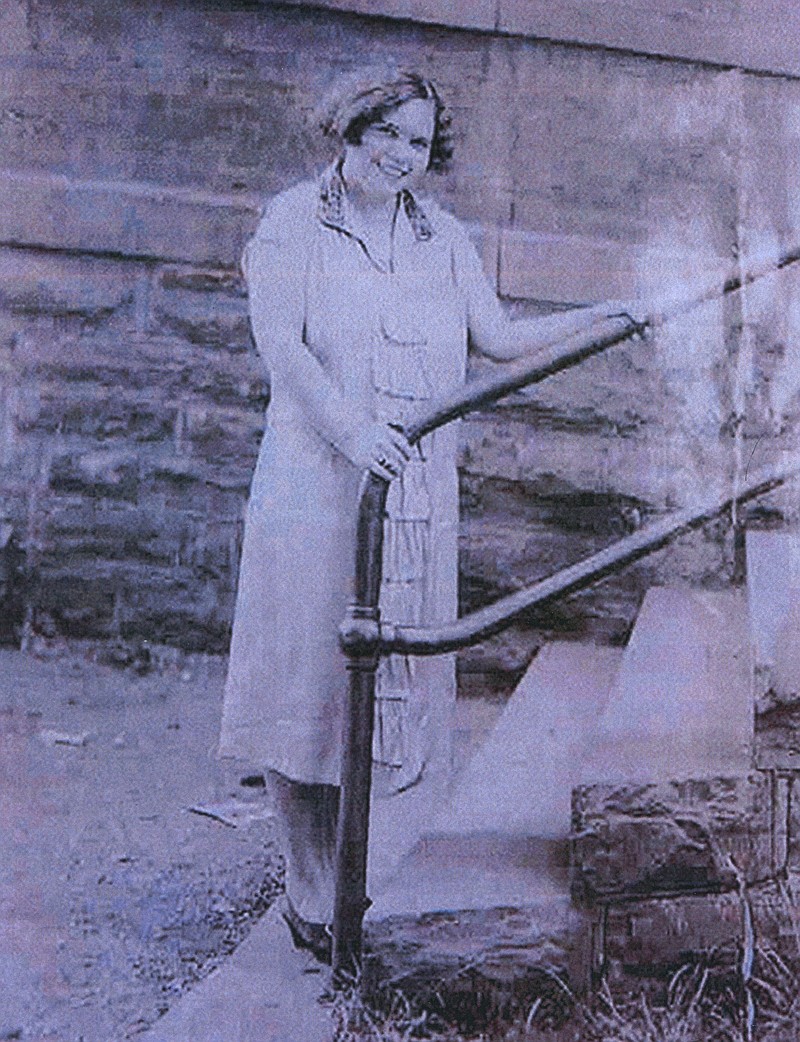A slight woman with an inquisitive mind, Nellie Kenyon stands out in the history of investigative journalism in Chattanooga during the early- to mid-20th century.
She started her career working part time for the Chattanooga News while a public school student. Once full time with the paper, she developed a reputation as a tough news reporter in the male-dominated profession -- having "southern sweet" blue eyes that twinkled, and a temper.
On an early assignment in 1925, she was the only female reporter covering the historic Scopes "Monkey" Trial in Dayton, Tenn. John Thomas Scopes, a local school teacher, was charged with violating state law for teaching the Darwinian theory of evolution. Arriving 10 days early in Dayton, she spoke to the judge about the dirty condition of the courtroom. She suggested that it be painted, and it was.
At the trial, Kenyon met the famous newspaper writer H.L. Mencken, who was reporting for the Baltimore Sun. Mencken asked Nellie about social opportunities on a Saturday night in the rural community. She mentioned: 1) attending the only movie theater in Dayton; 2) watching the monkeys that Barnum and Bailey Circus contributed to the public spectacle, and 3) attending a "Holy Roller" church service. Mencken agreed to the latter and wrote a column noting that "a sound Episcopalian or even a Northern Methodist would be regarded as virtually an atheist in Dayton."
In 1931, Kenyon helped police capture the robber who held up the Highland Park Bank. She solved the case by showing the investigating officers how the main suspect had planned the crime following the same pattern of conduct outlined in the detective magazine left in his boarding house along with a handcuff key used to shackle the bank tellers. In recognition of her feat, she was invited to the offices of Tower Magazine in New York City, where she received an award of $1,000 and a gold medal for the best detective-reporter work of the year. Kenyon and Eleanor Roosevelt, wife of the governor, posed before the cameras, struck up a friendship, and lunched together. Helen Keller sat near Kenyon and received the speeches translated through her fingertips. Keller said in her remarks that she was glad the award was given to a woman.
Kenyon demonstrated her investigative style again that same year. Convicted of income tax evasion in Chicago, Al "Scarface" Capone was on his way to federal prison in Atlanta. Kenyon boarded his train at the Chattanooga stop. Not surprisingly, she obtained an interview with America's most notorious criminal of the era.
According to legend, Nellie asked Capone "who was going to manage the store while you are gone?" Big Al is said to have flippantly replied "You are, cutie!"
Kenyon moved to Nashville in 1940 to work for The Tennesseean. There she exposed a baby-selling ring in Memphis, where infants were sold to Hollywood stars and other well-known people by Georgia Tann, later known as " The Baby Thief." She described Tann as she spoke in her heyday to an appreciative audience: "Her narrowed eyes gleaming with what appeared to be genuine anger, she brushed fingers through her silvery, short-cropped hair in a characteristic gesture," and acted as incensed as her audience by "the thriving black market in babies." Kenyon's investigative talents helped lead to the discrediting of Georgia Tann and the passing of new adoption laws in Tennessee.
Kenyon also covered the Jimmy Hoffa prosecution in 1962. A fellow reporter related that, even though the Teamster boss "would dog-cuss the Tennessean (Kenyon) with every breath," they became friends. Hoffa gave her a tour of his private plane, a cigarette lighter with the teamster emblem and an invitation to visit him in Detroit for a weekend. She turned him down.
John Siegenthaler, publisher of The Tennessean and her boss for many years said, "She was honest, and she was accurate, and she was very, very good at what she did."
Kenyon, who retired in 1970, said her philosophy was to: " keep the story simple, don't take sides and be fiery in your investigation and writing of the story." She said she was once told, "If there was a Pulitzer Prize for persistence -- I'd get it."
In 1982, she died in a nursing home in Nashville. There were no immediate survivors. She was buried at Chattanooga's Forest Hills Cemetery, where she has been featured in the Cemetery Stroll.
Jerry Summers is an attorney with Summers, Rufolo & Rogers and a published author. For more, visit Chattahistoricalassoc.org or call LaVonne Jolley 423-896-2090.
